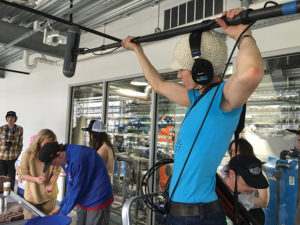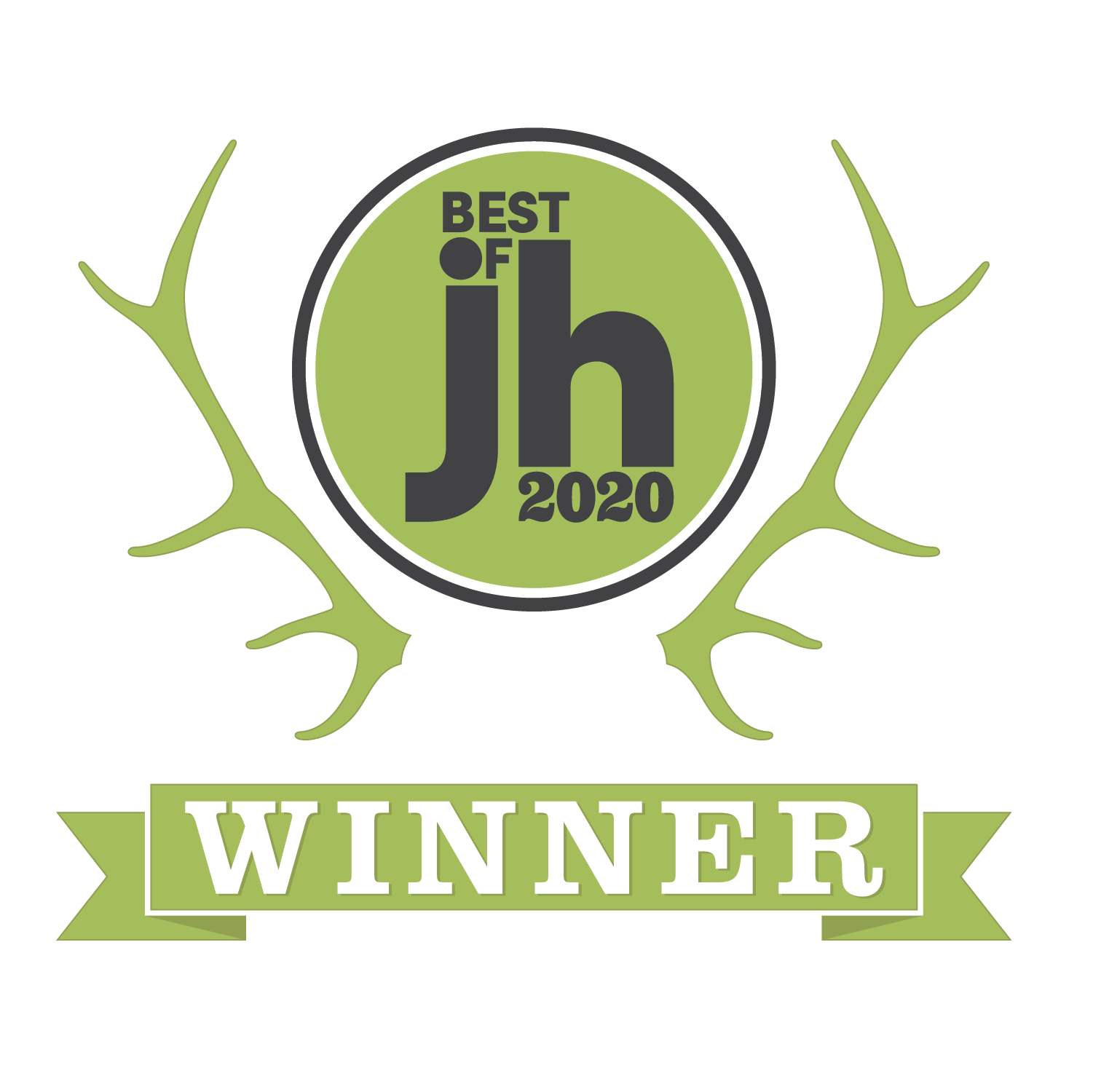
A local film in progress will illuminate the people behind the glass at Vertical Harvest. By Meg Daly
JACKSON HOLE, WY – How do we nourish community? That is the question explored in a new film in progress, Hearts of Glass, about Vertical Harvest, the urban greenhouse in downtown Jackson that has made people sit up and take notice. Funded in part through a unique public/private partnership with the Town of Jackson, it is one of very few vertical greenhouses in the world.
Vertical Harvest has been written up in The New York Times, The Atlantic, and myriad other publications. It has garnered attention not only for an innovative approach to growing food, but also for co-founders Penny McBride’s and Nona Yehia’s commitment to employing people with developmental disabilities.
Currently in its first year of operation, the three-story greenhouse is built onto the side of the multi-story parking structure on Simpson Street between Milward and Glenwood. This 13,500-square-foot glass structure fits on a postage stamp one-tenth of an acre, but yields an annual amount of produce equivalent to five acres of traditional agriculture. The produce consists of lettuces, micro-greens, basil and tomatoes. In total, the yield replaces 100,000 pounds annually of produce that would have been shipped into the valley.
Filmmaker Jennifer Tennican teamed up with Slow Food of the Tetons to produce Hearts of Glass, a feature length documentary to tell the story behind this innovative project. The film focuses on the people who staff the greenhouse, many who have developmental disabilities.
“I’m drawn to stories about community,” Tennican said. “As a documentary filmmaker who has chosen to focus on subject matter central to Jackson, Wyoming, where I live, it’s a gift from the story gods to have something as innovative and exciting as Vertical Harvest going on in your backyard.”
Indeed, Tennican’s recent films are centered on Jackson community institutions and icons. The Stagecoach depicts one of the valley’s most famous and enduring watering holes and how it has changed over time. Far Afield profiled naturalist and writer Bert Raynes and his contributions to the local community’s appreciation of nature and its stewardship.
Now Hearts of Glass will tell the story of Vertical Harvest’s first year, through the experiences of the people involved, from the founders to the workers.
Tennican has brought on several scholars as consultants to the film. Michelle Jarman is an associate professor of disability studies at the University of Wyoming. She commends the film’s commitment to highlight two aspects of social justice—local food sustainability and employment of folks with intellectual and developmental disabilities.
“People with disabilities (of all types) continue to struggle disproportionally with unemployment or under-employment, and this is especially true of individuals with intellectual and developmental disabilities,” Jarman said. “When employers like Vertical Harvest seek out qualified employees with disabilities, these employers and employees model an inclusive value system, where people with disabilities participate as integrated employees, residents, consumers, and citizens of their local communities.”
This model of providing employment to underserved communities fits with the larger mission of what practitioners call “urban agriculture.” UW associate professor of public health Christine M. Porter says urban agriculture has three roles. It should provide good food to people with limited financial resources at prices they can afford. Job training, work experience, and leadership development for people typically excluded from employment and leadership roles should also be among the offerings. Finally, it should generate income for producers and create jobs funded by profits from sales.
Vertical Harvest is trying to do all three. Porter says it is unusual to have such a high profile project in such a high visibility area, much less one with a tiny land footprint.
“Normally urban agriculture work is at the figurative and literal margins of our society, where community leaders in low-income, low-rent areas are reclaiming vacant lots to grow food with, for and by their communities, usually communities that face high food insecurity rates,” she said.
Unlike Tennican’s previous projects where she knew the story ahead of time, with Hearts of Glass she and her film crew are capturing the story as it unfolds. “Sometimes we are just a fly on the wall and other times we are doing on the spot interviews as people work.”
Focusing on people means capturing compelling story arcs and showcasing the diversity of the employees, aged 20 to 50 and beyond. Some live independently while others need full time support. Some are single, some married.
“It’s the kind of diversity you see in people without disabilities,” Tennican said. “People living with disabilities want the same things other people want—they want to feel valued and have good relationships with friends, family and community.”
The reason Tennican makes documentaries is to transport viewers into worlds they don’t ordinarily inhabit and meet people they may not have met otherwise. This mission, she explained, is particularly important in Hearts of Glass.
“There’s often a monolithic portrayal of people of disabilities that deprives them of their individuality,” she said. “This documentary tries to portray them as individuals. It’s important to me to film the employees as they are and let them express themselves in their own words.”
The film received initial funding from the Wyoming Humanities Council, Wyoming Arts Council, and the Wyoming Governor’s Council on Developmental Disabilities. Currently the film is about 50 percent funded. People can donate to the project via Slow Food of the Tetons.
“We want to create a community around the film,” Tennican said. “There are a lot of different people interested in this, from different corners of our community and our world.”
